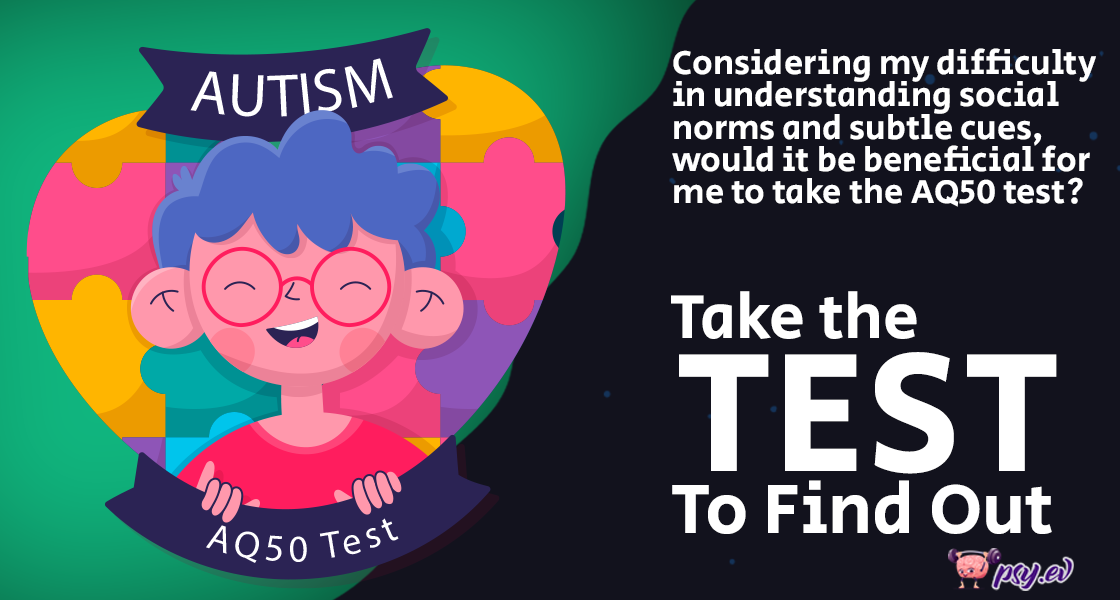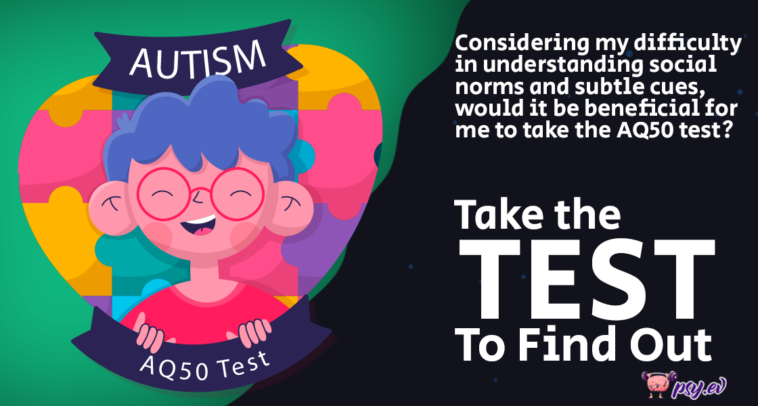Autism spectrum disorder (ASD) is a neurological and developmental condition that influences how people communicate, learn, and present themselves. ASD can be diagnosed in people of different genders, ethnic backgrounds, and socioeconomic statuses.
This AQ50 test is designed to help individuals assess their symptoms for autism spectrum disorders. A score higher than the suggested threshold shows typical characteristics and symptoms of autism.
Autism Signs and Causes
Autistic individuals struggle to build and maintain relationships. They also find it difficult to show interest in others, continue conversations, understand non-verbal cues, and appropriately react to social situations.
Many individuals with this disorder become obsessed with learning one subject, which enables them to excel in this area. Additionally, people with autism spectrum disorder (ASD) may exhibit repetitive and constrained interests or behavioral patterns.
Children with autism may also speak oddly when they first start speaking. Additionally, they may exhibit autism with signs of hyperlexia.
ASD's precise cause is difficult to pinpoint. It first shows up in young children. Certain genetic and environmental variables can influence its development. As they age, they might have speech impediments or trouble speaking. The rate of language development in other autistic children may vary.
According to the most recent study, a child may have a higher chance of autism if they have a family member with autism, have particular genetic variants, have hereditary diseases, have elderly parents, have hormonal imbalances, have exposure to environmental contaminants, or have a mother who has experienced viral illnesses.
After Getting The Result
A healthcare practitioner with expertise in offering behavioral, psychological, or skill-building therapies may be recommended to people with ASD. These programs may also involve parents, siblings, and other family members.
The cure for ASD does not exist. Instead, supportive treatments and other factors may help autistic persons manage their symptoms better.
Numerous strategies, including therapies like behavioral therapy, therapeutic play, workplace therapy, physical exercise, and speech treatment, can benefit people with ASD. Some autistic people may find massages, weighted blankets and clothes, and meditation methods to help control their symptoms.
On the other hand, some exercises may help autistic youngsters feel less frustrated and promote overall well-being. Similarly, they can benefit from any kind of activity that they love, such as walking or going to the playground.
People with autism with difficulty interpreting sensory messages might benefit from sensory play exercises.
The best treatments include early and vigorous behavioral support. People with ASD and their parents can learn about treatment choices and ASD-related programs by exchanging knowledge and experiences.
Parents of children with ASD also need specialized therapy to help them cope with the difficulties and strain of having a child on the spectrum. These programs assist parents in addressing their children's behavior encouragingly and positively.
Keep in mind that the AQ50 test is not a diagnostic tool. You need to consult with a professional for a proper and accurate diagnosis. Check with your general physician, who may refer you to a specialist who has experience in the field of ASD.


